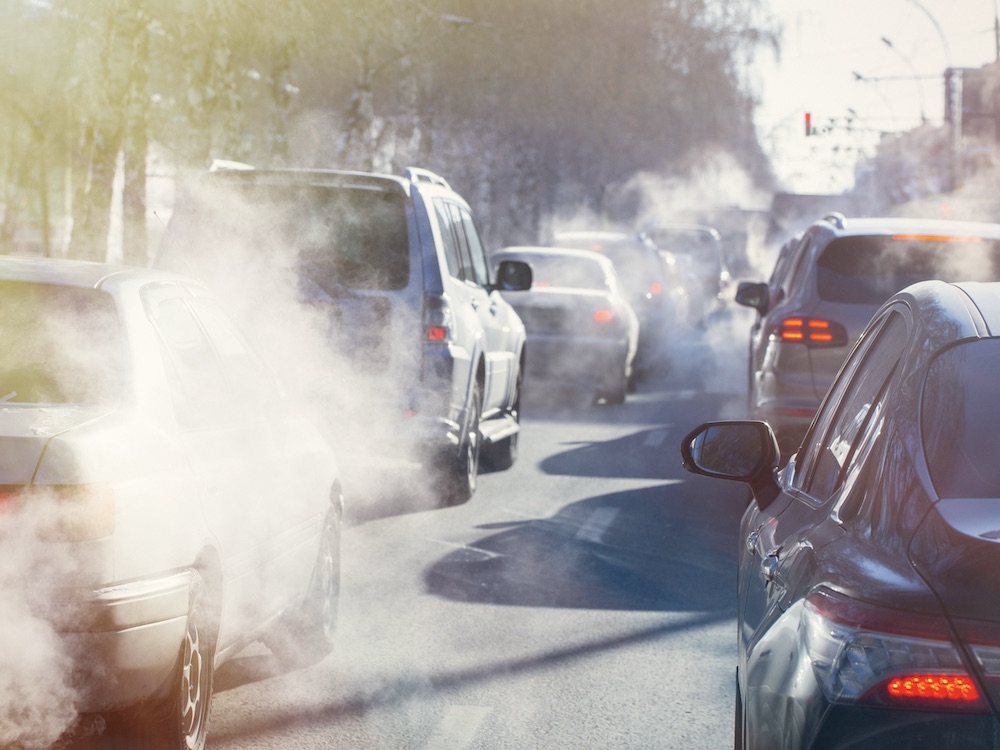We’ve all grown up with air pollution. But here in B.C., it’s easy to forget except when wildfire smoke darkens the sky. We like to think our air quality is excellent, especially compared to notoriously smoggy places like Delhi.
Health Canada has a lot to say about the subject, and sums up the toll:
We estimate that every year in Canada, air pollution is linked to:
- 15,300 premature deaths
- 2.7 million asthma symptom days
- 35 million acute respiratory symptom days
We estimate the socio-economic costs of the health impacts of air pollution in Canada at $120 billion per year (based on 2016 currency).
Health Canada goes on to tell us that traffic-related air pollution causes 1,200 premature deaths, 210,000 asthma days and 2.7 million acute respiratory symptom days, for a total cost of $9.5 billion. And it identifies those most at risk: those living within 250 metres of a high-traffic road, who are often children, older people and “lower socio-economic groups.”
And how does Health Canada advise us to reduce this toll? Don’t exercise in heavy traffic. Stay indoors. Drive a new car with a good engine and emission control, and fill it with low-sulphur fuel.
Every breath you take
You might also just accept it, because air pollution affects everyone. The World Health Organization says that 99 per cent of humanity is exposed to dangerous air pollution that adds to the death rates for stroke, heart disease, lung cancer and respiratory diseases.
Worse yet, much of the pollution comes from burning fossil fuels, which of course adds to global heating. Combined with household pollution from open fires or cooking with kerosene or coal, WHO says “The combined effects of ambient air pollution and household air pollution is associated with 7 million premature deaths annually.”
In other words, we lose as many people to air pollution in a year as COVID-19 has killed in three years. (Some estimates are even higher).
Perhaps we don’t take air pollution seriously for the same reason many of us have stopped worrying about COVID-19: we just don’t care anymore. Six or seven million deaths, out of eight billion people on the planet? That’s less than a tenth of one per cent, a rounding error in a multi-trillion-dollar global economy.
It’s less easy to shrug off a very recent study by researchers at the University of British Columbia and the University of Victoria. Professor Chris Carlsten is the head of UBC’s division of respiratory medicine and director of its Air Pollution Exposure Laboratory. He also holds the UBC Astra-Zeneca chair in occupational and environmental lung disease. In the first experiment of its kind, Carlsten and his colleagues used magnetic resonance imaging, or MRI, to study the effect of traffic-related air pollution, in the form of diluted diesel exhaust, on the brains of 25 healthy adult volunteers.
Diesel exhaust impacts brain activity
The volunteers — 14 men and 11 women, aged 19 to 49 — underwent MRI scanning immediately before and after being randomly exposed to either diesel exhaust or filtered air. Neither they nor the persons collecting the MRI data knew what they had been exposed to.
Each exposure lasted two hours, with two 15-minute periods of exercise on a stationary bike. Another exposure followed two weeks later.
The MRI scans showed that those exposed to diesel exhaust lost some functional connectivity in parts of their cortex. That’s a part of the brain that manages executive function, enabling us to retrieve memories, think flexibly and exercise self-control.
“Changes in brain connectivity,” the researchers wrote, “have been associated with decreased working memory and behavioural performance, and deterioration in productivity at work (which is also associated with air pollution).”
Those who breathed filtered air did not lose connectivity.
The lost connectivity was temporary. The researchers estimated that the functional impact of diesel exhaust was likely small after just two hours’ exposure. But they pointed out that “real-world exposures are often more persistent, particularly in regions of the world for which levels such as those we use are not uncommon.” Furthermore, chronic exposure could lead to “accumulated deficits” in brain connectivity.
So people living and working in highly polluted environments for months or years could suffer measurable damage to their brains that would affect cognition, memory and learned skills. Further research may confirm such a hypothesis, adding to the already-known damage that pollution inflicts or organs like the heart and lungs.
Regulate or eradicate?
The researchers express the hope that their findings will “guide policy change in air pollution regulation.” If air pollution is already killing seven million people a year, year after year, the most useful form of regulation might be eradication — simply removing the energy and transportation systems that rely on fossil fuels. Pollution-associated brain damage is just another good reason for going electric. And until we achieve that goal, we’d be wise to use top-rated masks outdoors to avoid inhaling too many PM 2.5 mm particles — specks of matter small enough to lodge deep in the lungs, where they contribute to asthma and heart disease.
It should be self-evident that every house and apartment, workplace and classroom needs clean air just as it needs clean water. Andrew Nikiforuk has made a strong case for clean indoor air to reduce COVID-19 transmission. The case is even stronger if polluted air actually damages our brains.
And until our energy and transport systems are all renewable-electric, we would be wise to keep them isolated from densely populated areas — especially working-class families, Indigenous communities and other vulnerable people.
Given the trouble we already face from pollution and climate collapse, we truly need to keep our wits about us. And not to go on stupefying ourselves as we’ve been doing for a century or more. ![]()
Read more: Health, Coronavirus, Environment
















Tyee Commenting Guidelines
Comments that violate guidelines risk being deleted, and violations may result in a temporary or permanent user ban. Maintain the spirit of good conversation to stay in the discussion.
*Please note The Tyee is not a forum for spreading misinformation about COVID-19, denying its existence or minimizing its risk to public health.
Do:
Do not: